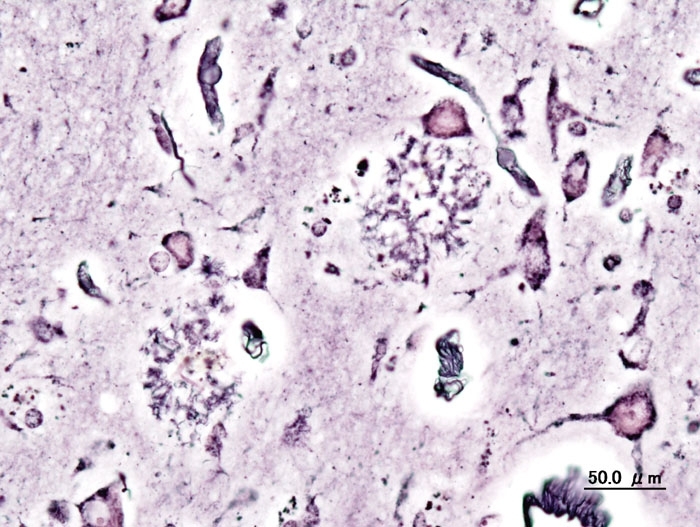

NIH database indexes data about studies available in the FAPESP Virtual Library (image: Wikimedia)
NIH database indexes data about studies available in the FAPESP Virtual Library.
NIH database indexes data about studies available in the FAPESP Virtual Library.

NIH database indexes data about studies available in the FAPESP Virtual Library (image: Wikimedia)
By Diego Freire
Agência FAPESP – FAPESP grants and scholarships for research projects on Alzheimer’s disease have now been added to the international database known as the International Alzheimer’s Disease Research Portfolio (IADRP), developed by the National Institutes of Health (NIH) in the United States in partnership with the Alzheimer’s Association, a US NGO.
The inclusion occurred following an invitation by the US institution and involved the FAPESP Virtual Library team organizing data from the studies according to international standards.
“It’s one way for us to get science from the state of São Paulo out to the world at this time of internationalization of scientific knowledge, presenting the work that our researchers are carrying out with support from FAPESP to an international public,” said Rosaly Favero Krzyzanowski, coordinator of the FAPESP Virtual Library (BV-FAPESP).
Information regarding the 246 research projects in São Paulo is already accessible on the IADRP. According to Diego Ucha, a systems analyst for the BV-FAPESP, the data will be updated continuously. “We started with the projects that have information in English, according to criteria established by the IADRP, and we will continue to feed the database with new studies on the subject.”
The IADRP includes information from 23 research organizations in the field. FAPESP is the first Brazilian institution to take part, adding Brazil to the group of countries with research indexed in the international database, alongside the United States, Canada, the United Kingdom, Australia, Poland and Italy.
Users consulting the IADRP can access key information about Alzheimer’s disease research, and they are referred to the BV-FAPESP for access to the complete information.
“It is a reference coming from a government website, which increases the significance of the BV-FAPESP results in search engines and gives increased visibility to research conducted in the state of São Paulo,” Ucha explained.
The BV-FAPESP system facilitated the collection of data and its availability in the international database. “This has only been possible thanks to the work that preceded the process and the support of BV metadata, which led to the refinement of the system and allowed us to precisely identify the information,” Ucha said.
After the research data were identified by the BV team, the selected content was evaluated by Carlos Eduardo Negrão of the FAPESP Area Panel on Life Sciences and was then adapted by the IADRP team for indexing.
“The information reveals the importance that FAPESP places on research funding in a field as important as degenerative diseases, and especially Alzheimer’s disease, and expands the reach of the scientific knowledge generated by Brazil,” Negrão said.
The indexed studies may be consulted at iadrp.nia.nih.gov.
Republish
The Agency FAPESP licenses news via Creative Commons (CC-BY-NC-ND) so that they can be republished free of charge and in a simple way by other digital or printed vehicles. Agência FAPESP must be credited as the source of the content being republished and the name of the reporter (if any) must be attributed. Using the HMTL button below allows compliance with these rules, detailed in Digital Republishing Policy FAPESP.





